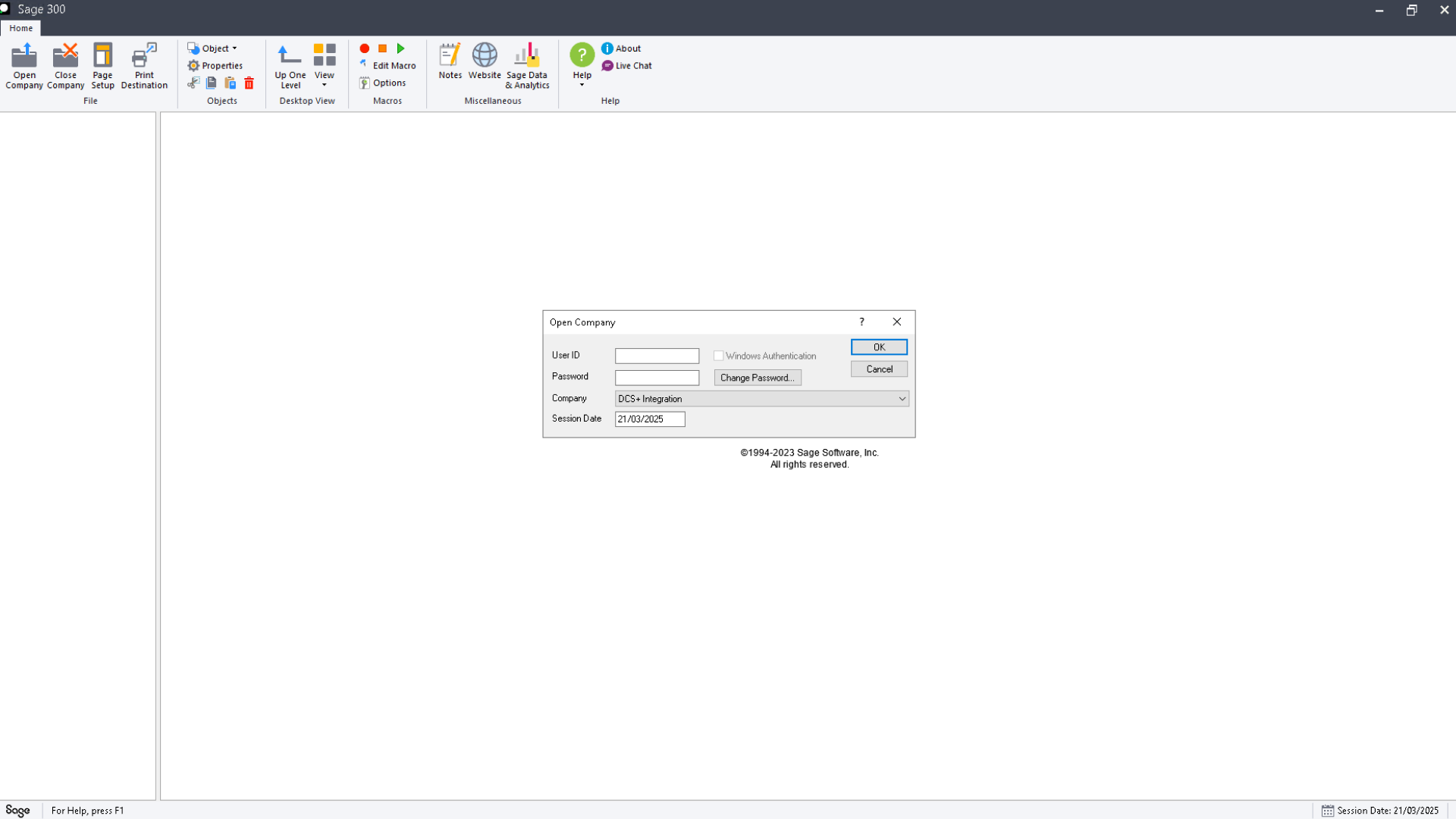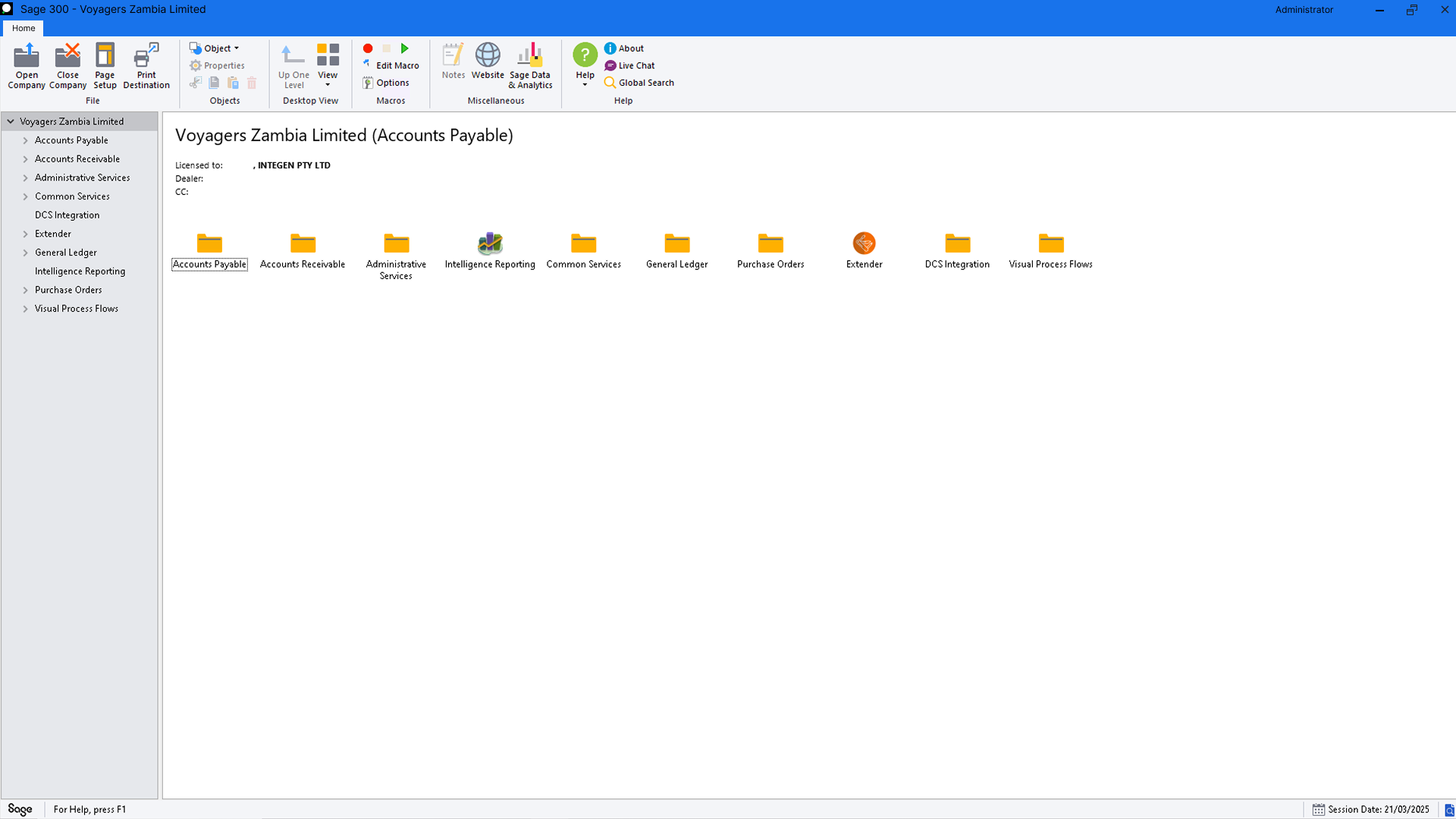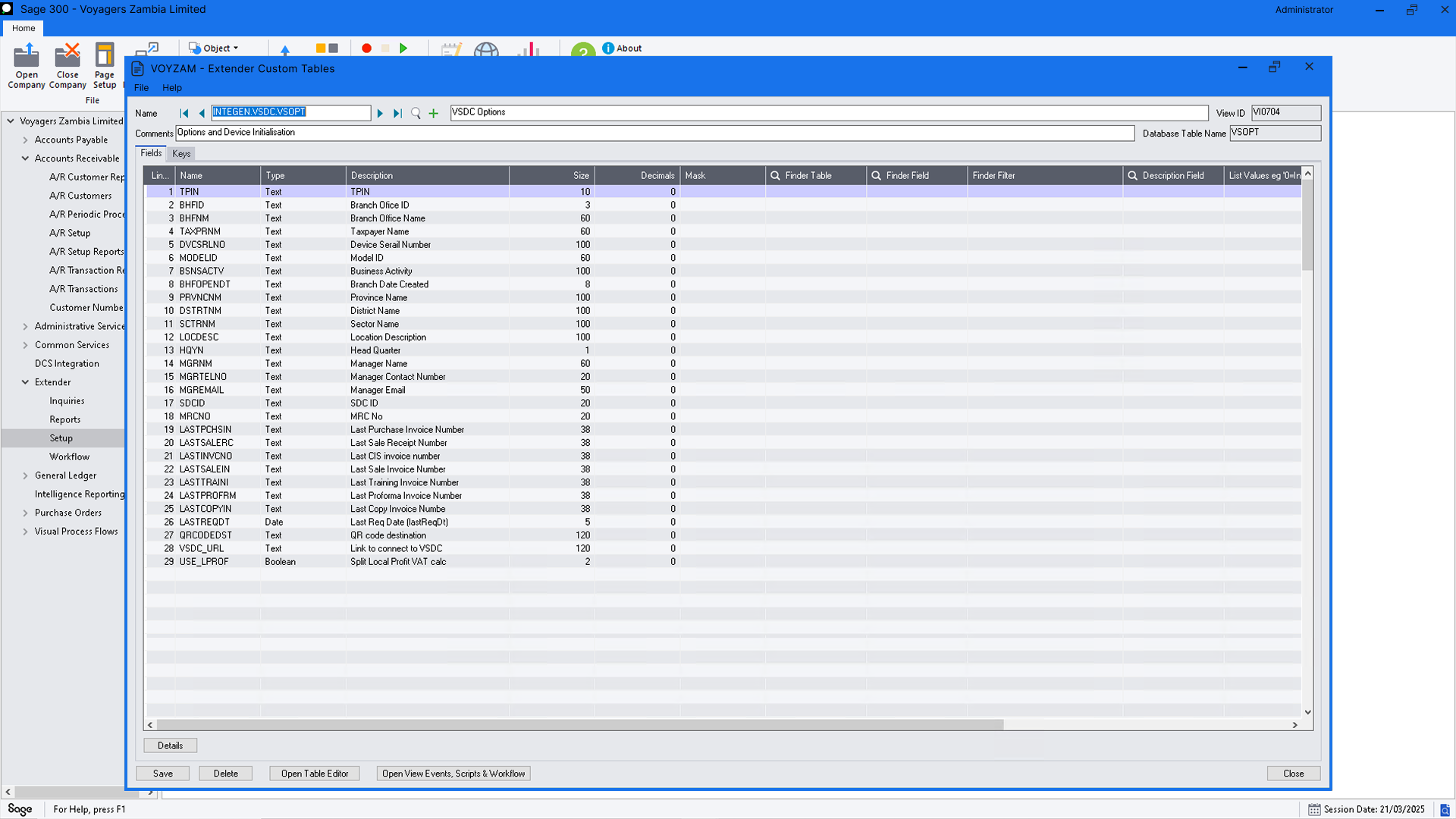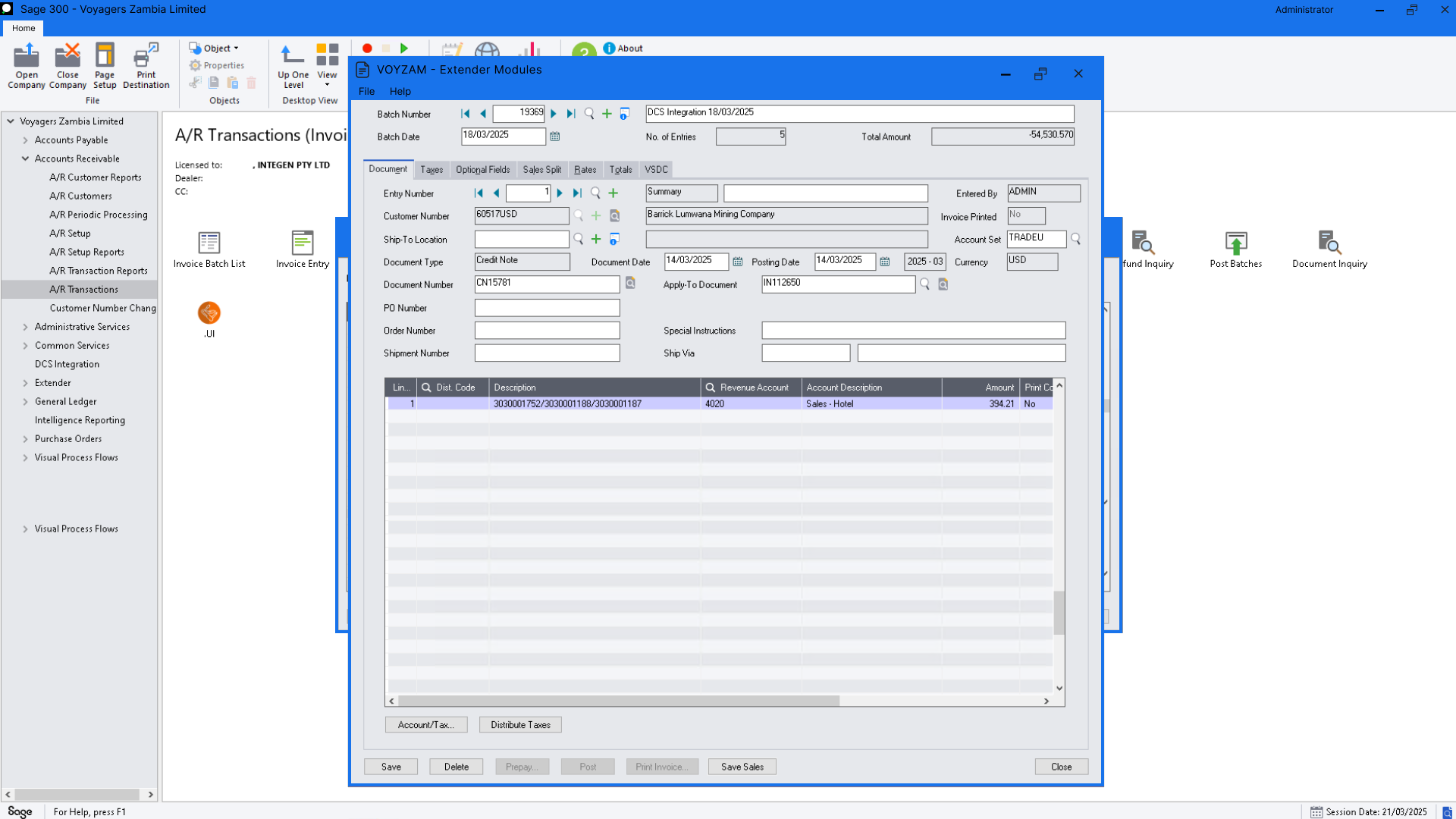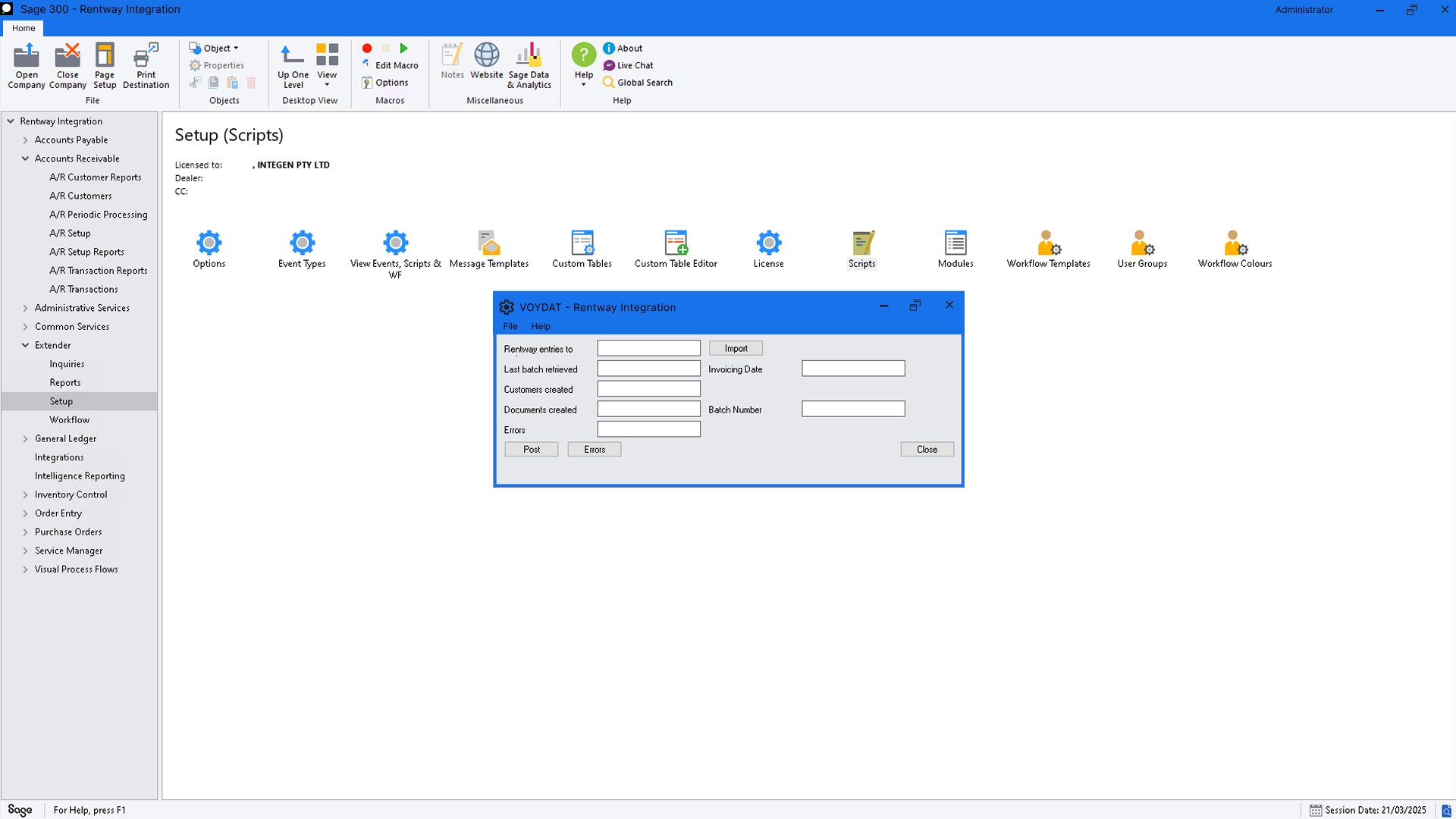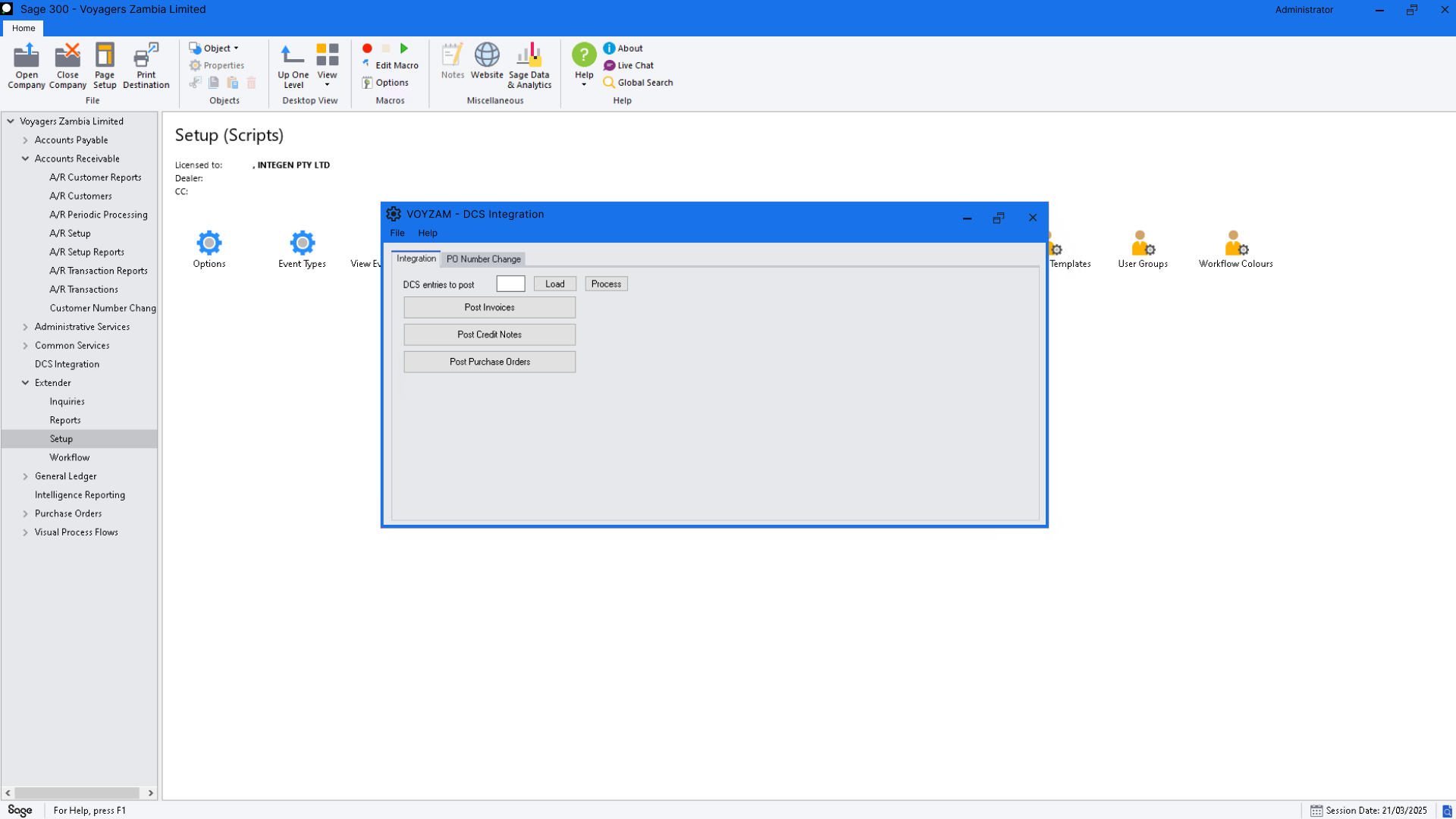


Sage 300 ERP System Development – Service Integration
The accuracy and speed of data exchange between systems directly impacts the efficiency of any business. InteGen, the company implementing Sage 300 ERP, approached the AVADA MEDIA team with the task of optimizing the system. The process of transferring information from external platforms—specifically, online stores, booking services, and tax systems—was time-consuming, error-prone, and hampered reporting.
To address these issues, we developed a series of integration modules that automated data exchange between Sage 300 and external services. Now, information on orders, leases, and tax documents is automatically transferred to the ERP, and employees work in a single interface, eliminating the need for manual data entry. This has improved the accuracy of financial information, accelerated data processing, and allowed the company to focus on strategic tasks rather than routine processes.




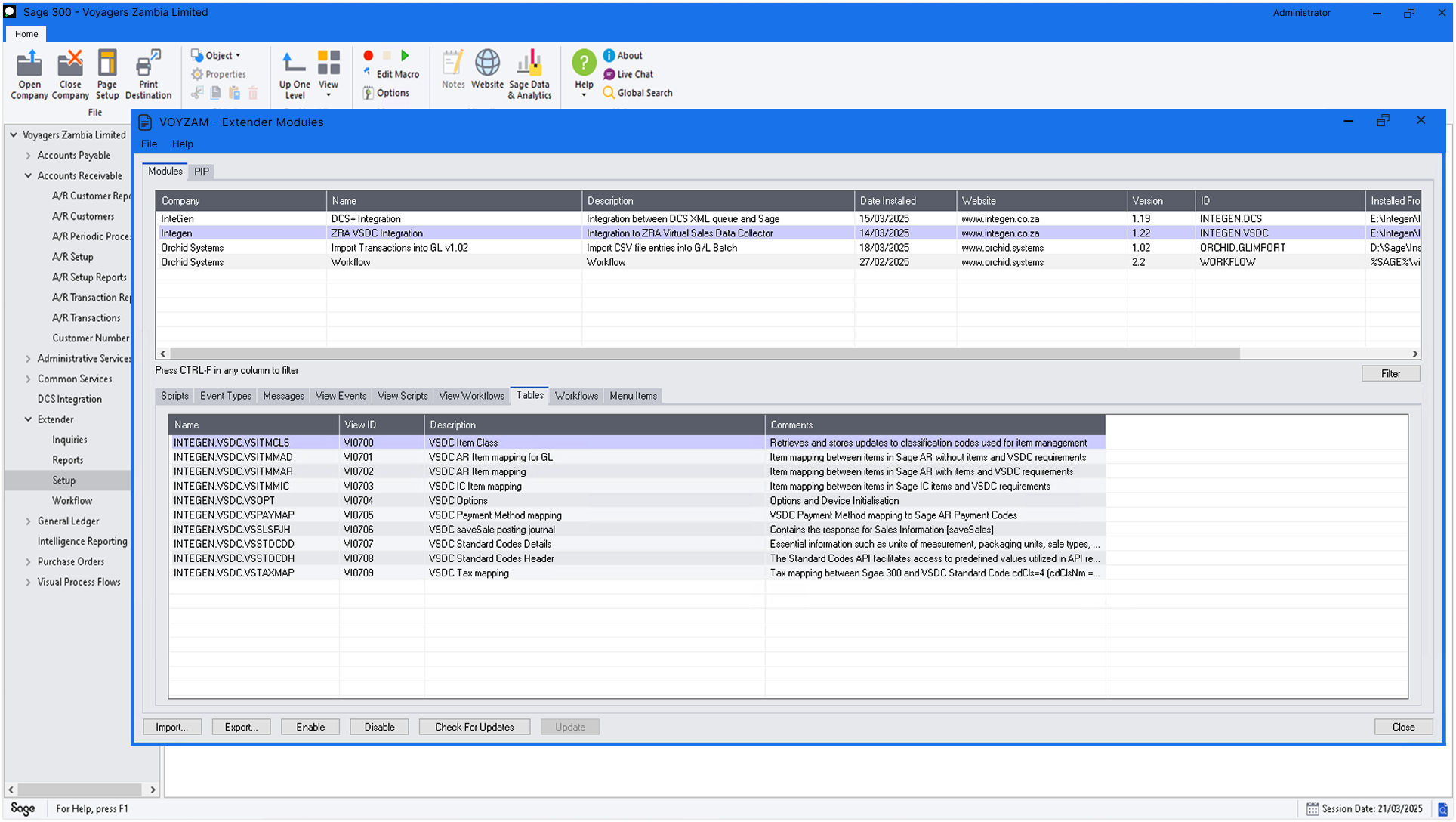
Project goals and objectives
The project's goal was to expand the capabilities of the Sage 300 ERP system through integration with external platforms such as RENTWAY, WooCommerce, DCS+, and Smart Invoice. To successfully enhance the existing system, the AVADA MEDIA team set the following objectives:
- Automate and accelerate the exchange of order, customer, booking, and financial transaction data between Sage 300 and third-party services, increase process transparency, and eliminate manual data entry.
- Ensure the correctness and integrity of information , timely updating of data and accuracy of reports through validation, control of record integrity and prevention of duplication.
- Create a flexible and scalable architecture —modules that can be easily expanded and adapted to new business requirements, and a single interface for working with data from different sources.
Stages of ERP integration implementation
To achieve the project's goals, our team developed individual modules for service integration, taking into account the specifics of the program and the needs of end users.
- RENTWAY
Our fleet and rental business management service allows you to monitor vehicle availability and bookings, automate calculations, and generate occupancy reports. We've set up automatic processing of new requests, saving them in the ERP system, and tracking the last update date. This reduces the workload on employees and provides clients with quick access to up-to-date payment and rental information.
- WooCommerce
In the next step, our team developed a module for synchronizing orders, customers, and products with the WordPress-based eCommerce platform. Now, the ERP automatically checks for existing records and creates new ones if necessary. This centralized order and data management, streamlining workflows and reducing the likelihood of errors.
- DCS+
The DCS+ system manages travel bookings and generates financial documents. At the client's request, we migrated the integration from C# to Python. The new module processes XML files one by one and notifies the DCS+ system when data is saved. It can be further adapted to meet new business requirements.
- Smart Invoice
Automatic data submission to the VSDC system for tax document verification was implemented. This completely eliminated manual operations and ensured compliance with Zambian legal standards.
Thanks to the implemented solutions, InteGen now has a reliable, flexible data exchange system. Taken together, all ERP integrations significantly increased accounting transparency, accelerated information updates, and reduced the risk of errors.
Team and technologies for project implementation
A team of specialists with various competencies was formed for this project:
- Backend developers developed the logic for integrating the ERP system with external platforms, configured data processing and validation, using tools such as Python, Pydantic, HttpX, SDK/API, and ZeepClient.
- Front-end developers used JavaScript to adapt Sage 300 interfaces, creating user-friendly screens for working with new modules.
- QA testers verified the correct operation of integrations and the stability of the entire system.
Thanks to our team's coordinated work and the use of modern technologies, we were able to create a flexible, reliable, and scalable integration system.
Results and benefits for the client
The ERP integration service from AVADA MEDIA specialists enabled InteGen clients to transition from manual and fragmented data management to a fully automated system for information exchange between Sage 300 and external services. This delivered a number of measurable results for users of the production management system:
- A single ERP interface provides centralized access to data on orders, leases and financial documents;
- Automatic synchronization eliminates human errors and allows you to focus on strategic tasks instead of manual operational processes;
- Data verification and validation ensure the accuracy of financial and tax documents, compliance with legal requirements and internal standards;
- modular architecture makes it easy to add new integrations or modify existing ones;
- Process optimization improves overall business efficiency, consistency, and manageability.
Thanks to modern technological solutions, the integration modules demonstrated the flexible adaptation of the ERP system to specific business needs. The project demonstrated AVADA MEDIA's expertise in integration and API development, as well as our deep experience, which allows us to handle projects of any complexity.












